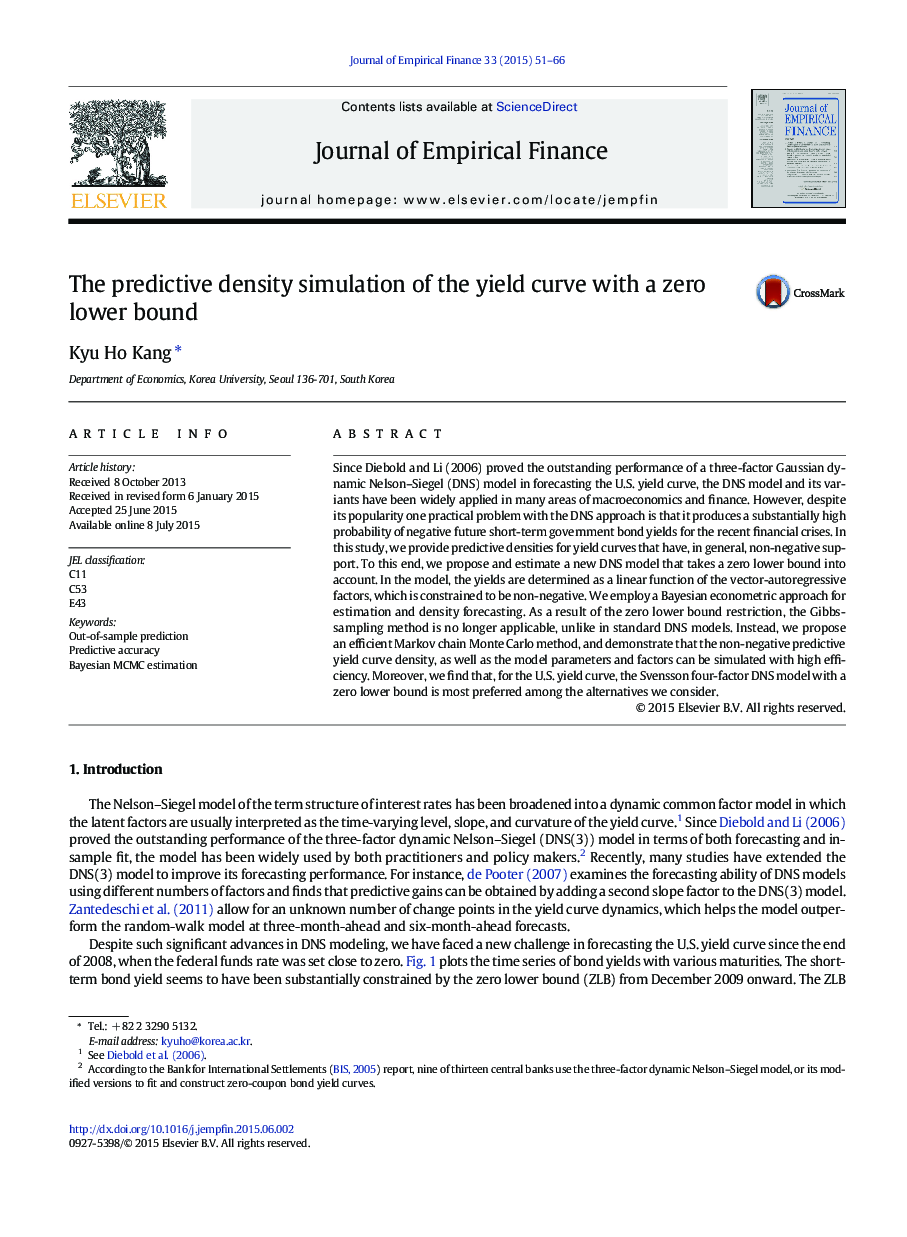| Article ID | Journal | Published Year | Pages | File Type |
|---|---|---|---|---|
| 7360779 | Journal of Empirical Finance | 2015 | 16 Pages |
Abstract
Since Diebold and Li (2006) proved the outstanding performance of a three-factor Gaussian dynamic Nelson-Siegel (DNS) model in forecasting the U.S. yield curve, the DNS model and its variants have been widely applied in many areas of macroeconomics and finance. However, despite its popularity one practical problem with the DNS approach is that it produces a substantially high probability of negative future short-term government bond yields for the recent financial crises. In this study, we provide predictive densities for yield curves that have, in general, non-negative support. To this end, we propose and estimate a new DNS model that takes a zero lower bound into account. In the model, the yields are determined as a linear function of the vector-autoregressive factors, which is constrained to be non-negative. We employ a Bayesian econometric approach for estimation and density forecasting. As a result of the zero lower bound restriction, the Gibbs-sampling method is no longer applicable, unlike in standard DNS models. Instead, we propose an efficient Markov chain Monte Carlo method, and demonstrate that the non-negative predictive yield curve density, as well as the model parameters and factors can be simulated with high efficiency. Moreover, we find that, for the U.S. yield curve, the Svensson four-factor DNS model with a zero lower bound is most preferred among the alternatives we consider.
Related Topics
Social Sciences and Humanities
Economics, Econometrics and Finance
Economics and Econometrics
Authors
Kyu Ho Kang,
